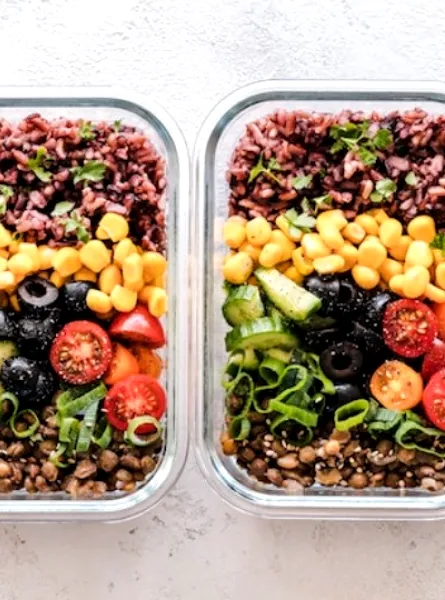
If you have a teenager at home, you know how voracious their appetite can be! Their rapid growth requires special attention to their diet to ensure optimal growth. Here are 6 tips to help your teens eat well and grow healthy:
1. Emphasize Breakfast
Breakfast is often overlooked by teenagers, yet it is essential. It provides an opportunity to consume nutrient-rich fruits and dairy products. Moreover, having a good breakfast promotes long-term weight management. If you're lacking ideas for nutritious breakfasts, check out our "recipes" section under the "breakfast" theme on our website!
2. Increase Exposure to Nutritious Foods
It can be challenging to control what your teenagers eat outside the home, but you can control the quality of the food offered at home. Teenagers often have insufficient consumption of fruits and vegetables. Prepare a large container of raw vegetables and dips at the beginning of the week and place a large bowl of fruits in the kitchen to encourage them to eat more.
3. Opt for Nutritious Snacks
Teenagers tend to consider chips, candies, and chocolates as snacks. However, these foods are high in fat, sugar, and salt and provide few growth-promoting nutrients. To satisfy their hunger between meals and prevent them from being tempted by these foods, teach them how to prepare nutritious snacks. Combine protein sources such as milk, yogurt, fortified soy milk, nuts, and cheese with healthy carbohydrates and sugars such as fruits, vegetables, whole wheat crackers, and oatmeal!
4. Go Grocery Shopping with Your Teenager
Encourage your teenager to choose less processed foods. Look for unpackaged foods or those with a short and easy-to-understand ingredient list. This activity will allow your teenager to make responsible food choices and make better choices in the future.
5. Promote Family Meals
Eating in front of a screen (TV, computer, tablet, mobile phone) disrupts the perception of hunger and satiety. This often leads to overconsumption of food. Family meals help slow down the pace and amount of food consumed while strengthening bonds with your teenager.
6. Avoid Using Food as Punishment or Reward
"If you don't eat your vegetables, no dessert!" This type of double-edged statement can make less nutritious foods more appealing to teenagers. While a balanced diet involves a variety of foods, it's best to avoid associating food with punishments or rewards. This helps promote a healthy relationship with food.
By following these tips, you can help your teenagers adopt healthy eating habits to promote their growth and well-being. Remember that each teenager is unique, so adapt these tips according to individual needs and preferences. If you need additional support, don't hesitate to consult a nutrition professional for personalized advice.
By encouraging a balanced and nutritious diet, you can contribute to the health and well-being of your teenagers during this crucial period of their lives.





